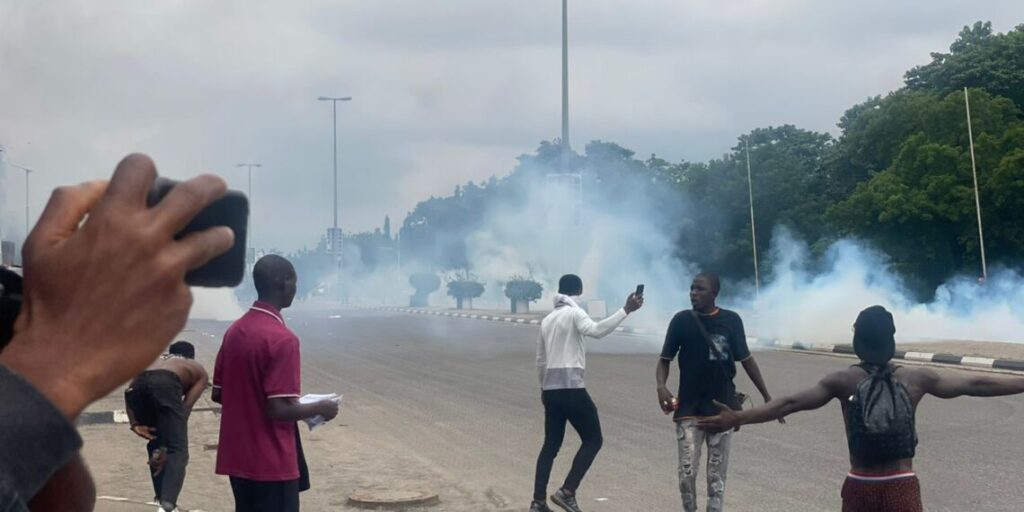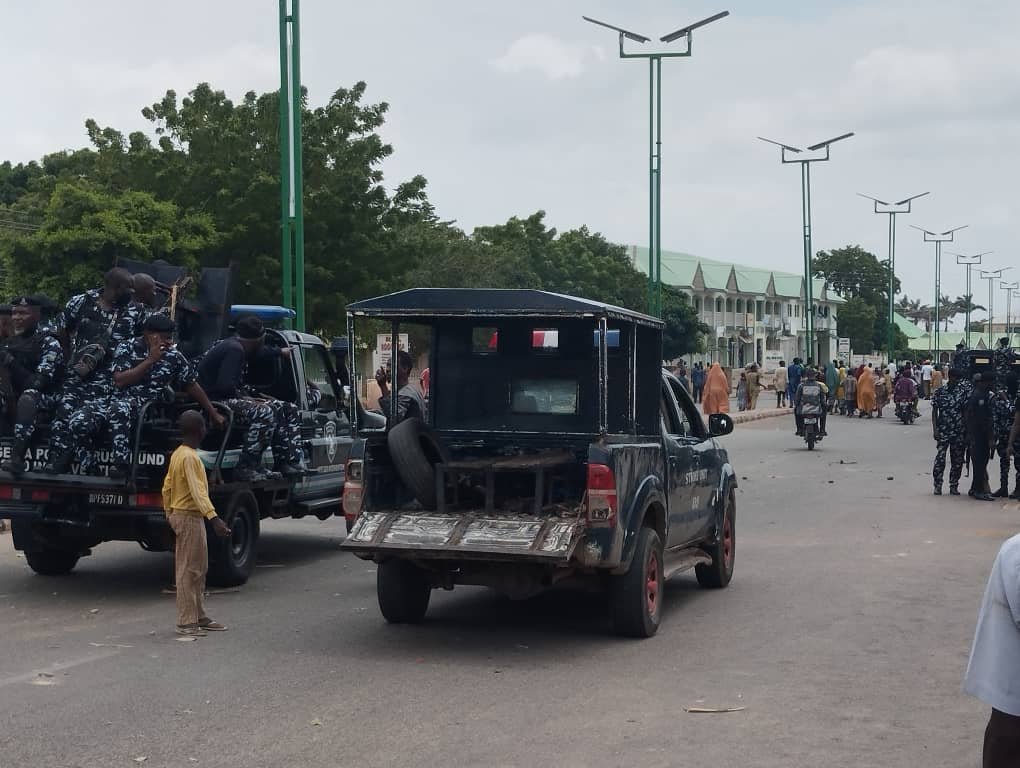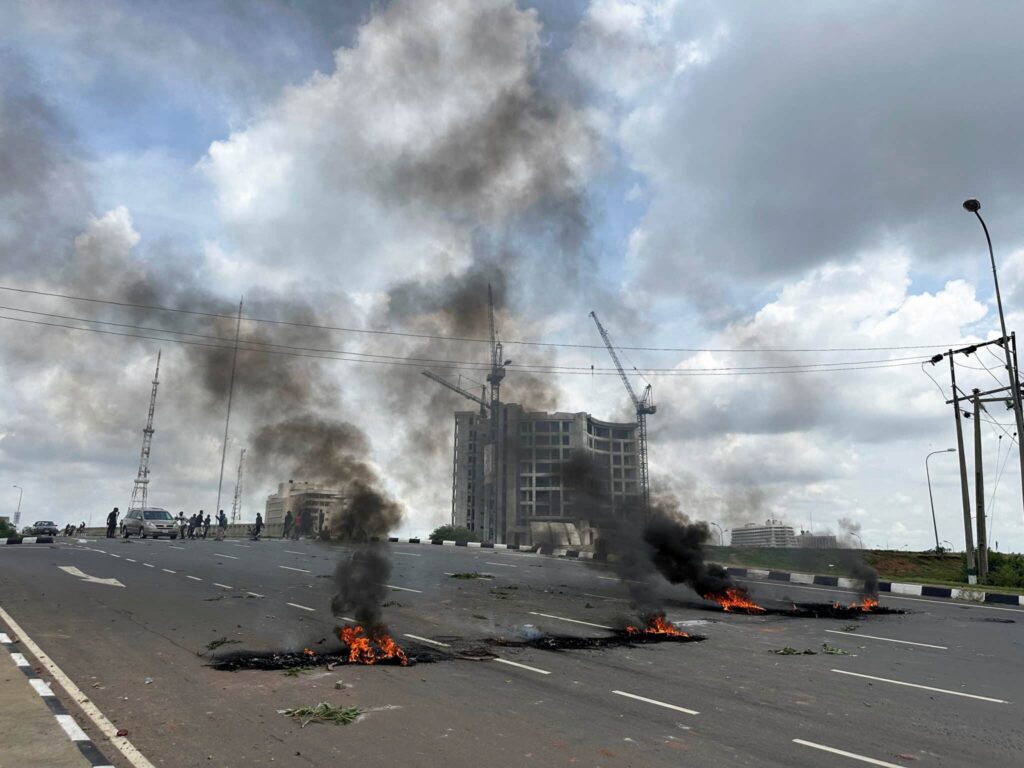Northern Nigeria has been plunged into chaos as hunger protests in Zamfara State turned violent, while neighboring Kaduna State imposed a 24-hour curfew in response to escalating unrest. The nationwide demonstrations against economic hardship have taken a dangerous turn, highlighting the deepening crisis facing Africa’s most populous nation.

In Gusau, the capital of Zamfara State, protesters blocked major roads and clashed with police near the Central Police Station on Monday. What began as peaceful demonstrations quickly devolved into scenes of vandalism and looting, with both private and public properties targeted. Security forces were deployed across the city in an attempt to restore order, but many residents sought shelter as shops, businesses, and filling stations shuttered their doors.
The unrest has paralyzed daily life in Gusau, with one resident, Usman Muktar, lamenting, “Hoodlums are now using the opportunity of the nationwide protest to loot peoples’ properties even though it was supposed to be peaceful protest, as promised by the organizers.” The breakdown of law and order has made even basic activities like fueling vehicles nearly impossible, further exacerbating the hardships faced by citizens.

In response to similar unrest, Governor Uba Sani of Kaduna State took decisive action by imposing a 24-hour curfew on Kaduna and Zaria metropolitan areas. The Kaduna State Security Council, citing evidence that criminal elements had hijacked the protests, implemented the curfew with immediate effect. Samuel Aruwan, the Overseeing Commissioner for the Ministry of Internal Security and Home Affairs, stated that the decision was unanimous among council members.
The curfew in Kaduna and Zaria requires citizens to remain indoors while security forces work to maintain safety and stability. Authorities have promised to monitor the situation closely and review the curfew as needed, indicating the fluid nature of the crisis.
These events underscore the volatile situation in northern Nigeria, where economic hardships have fueled widespread discontent. The protests, initially focused on hunger and economic policies, have rapidly evolved into a broader expression of frustration with governance and living conditions.

The Nigerian government now faces a complex challenge: addressing the legitimate grievances of its citizens while maintaining public order and preventing further violence. The situation in Zamfara and Kaduna serves as a stark warning of the potential for civil unrest to spread if the root causes of public dissatisfaction are not addressed.
As night falls on Gusau and Kaduna, residents brace for an uncertain future, caught between the desperation that drove the initial protests and the fear of escalating violence. The coming days will be crucial in determining whether authorities can restore calm and begin to address the underlying issues that have brought so many Nigerians to the streets in protest.



